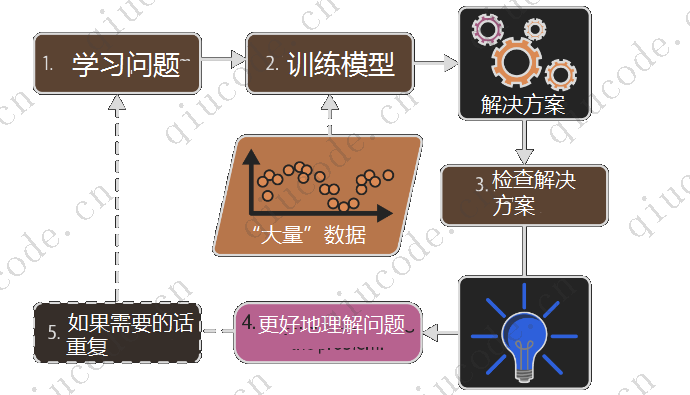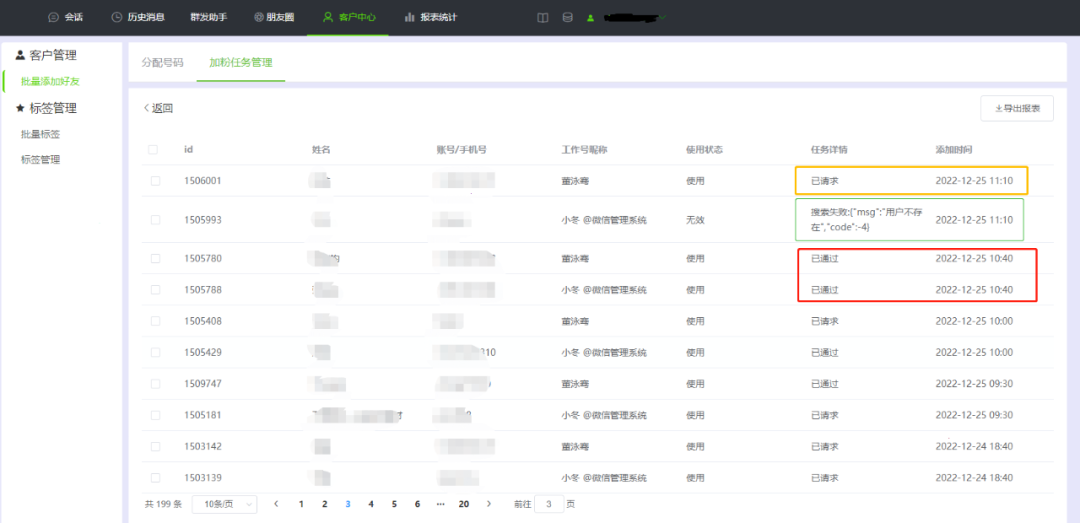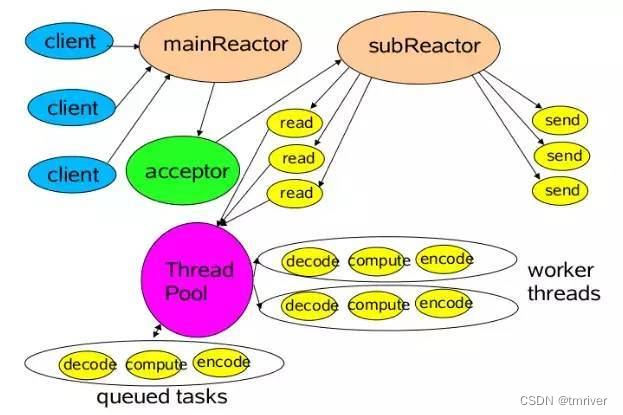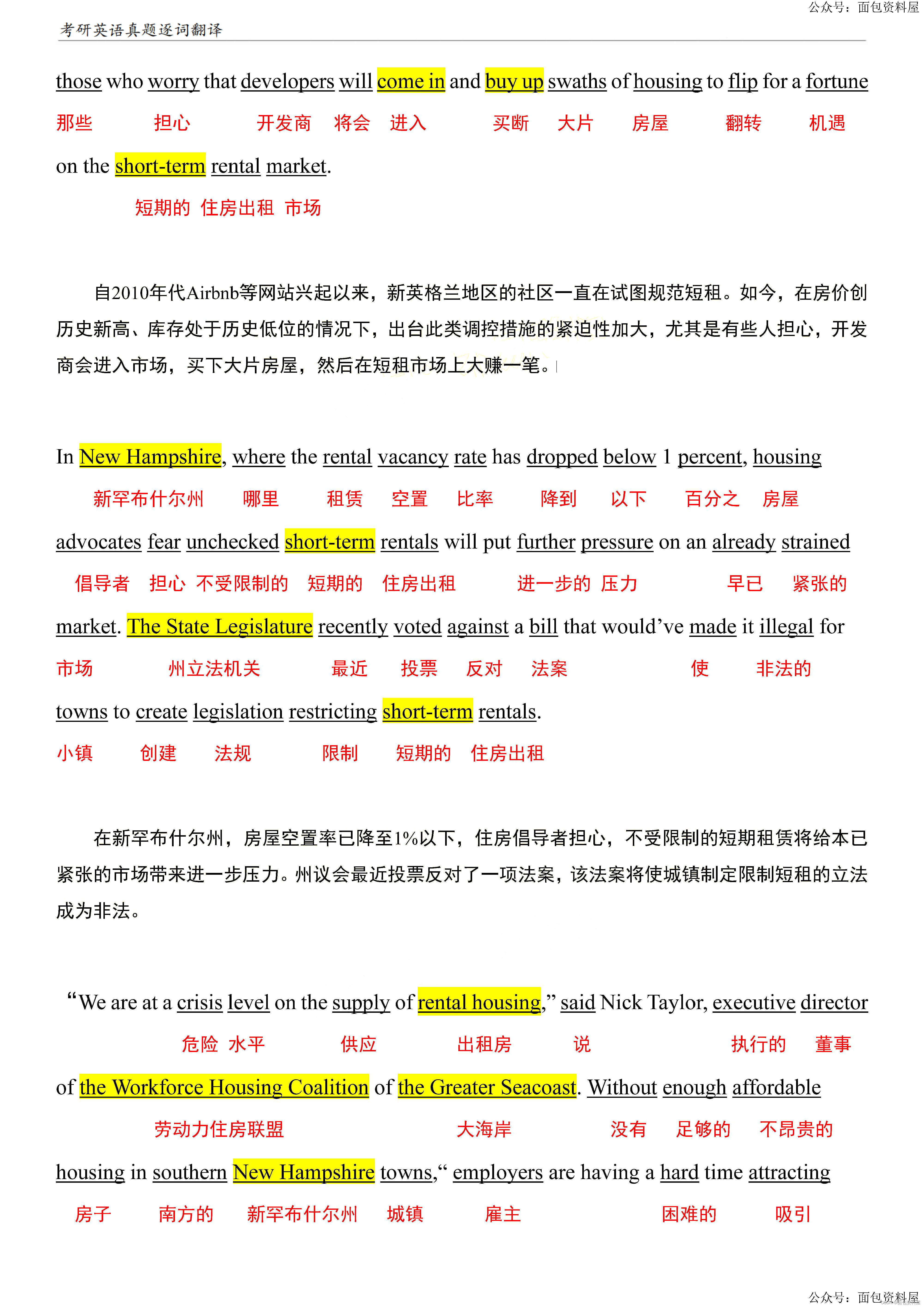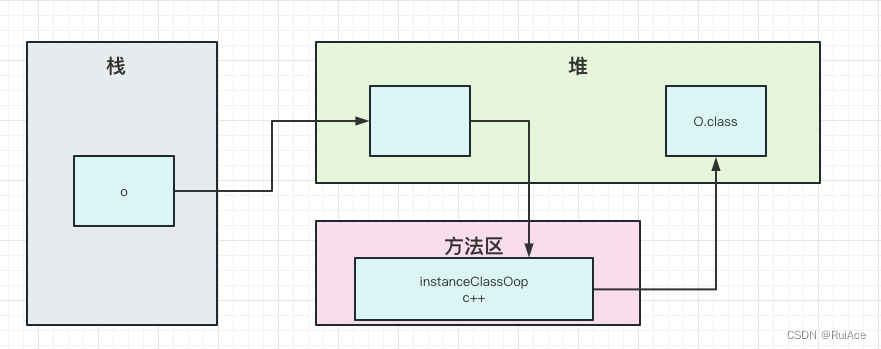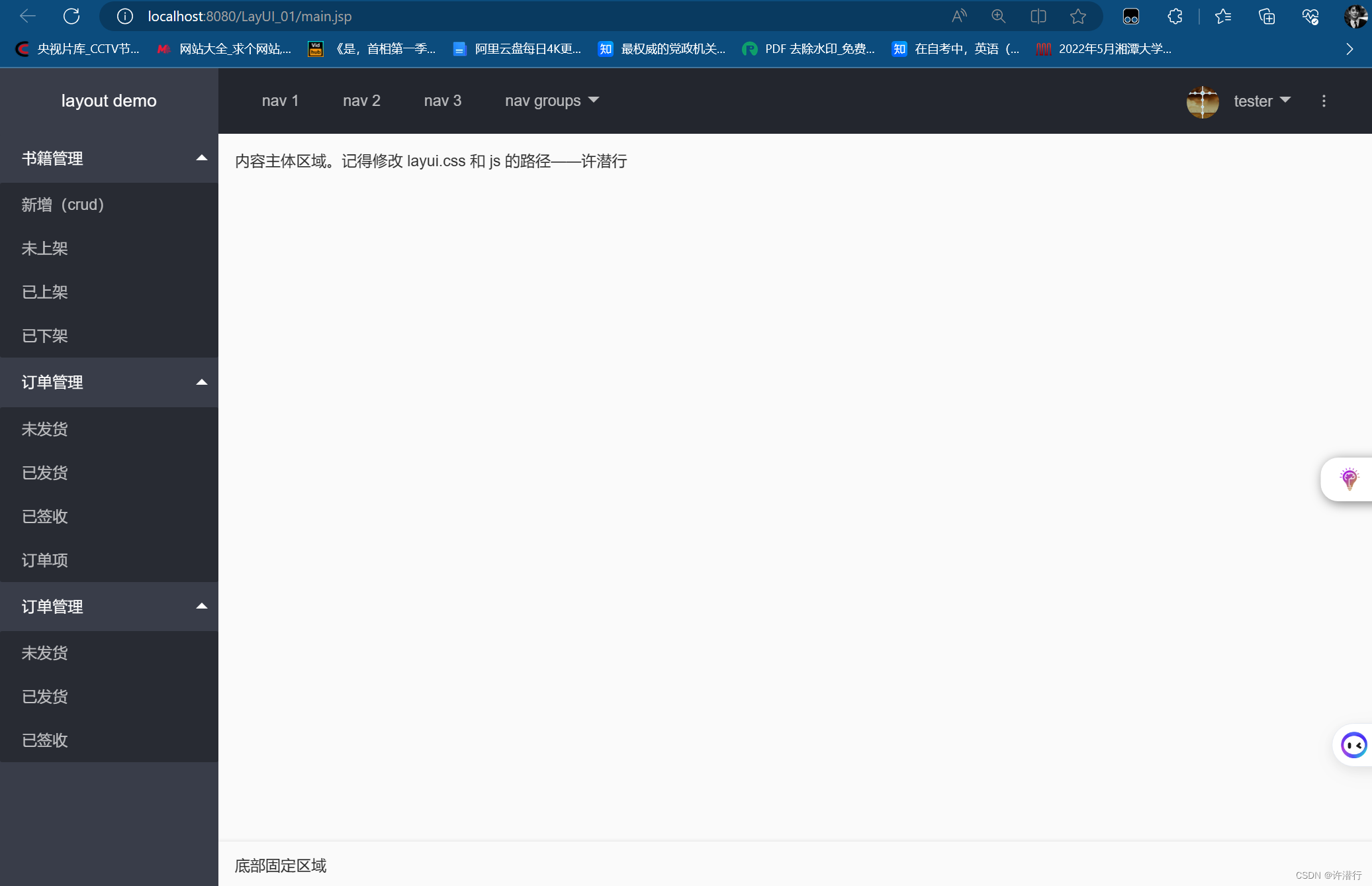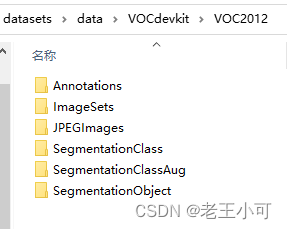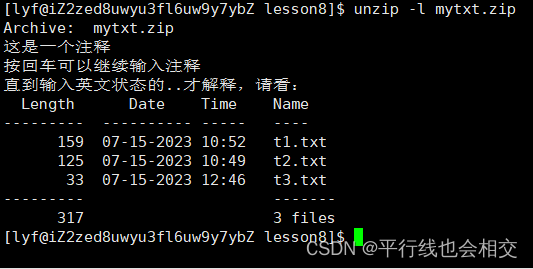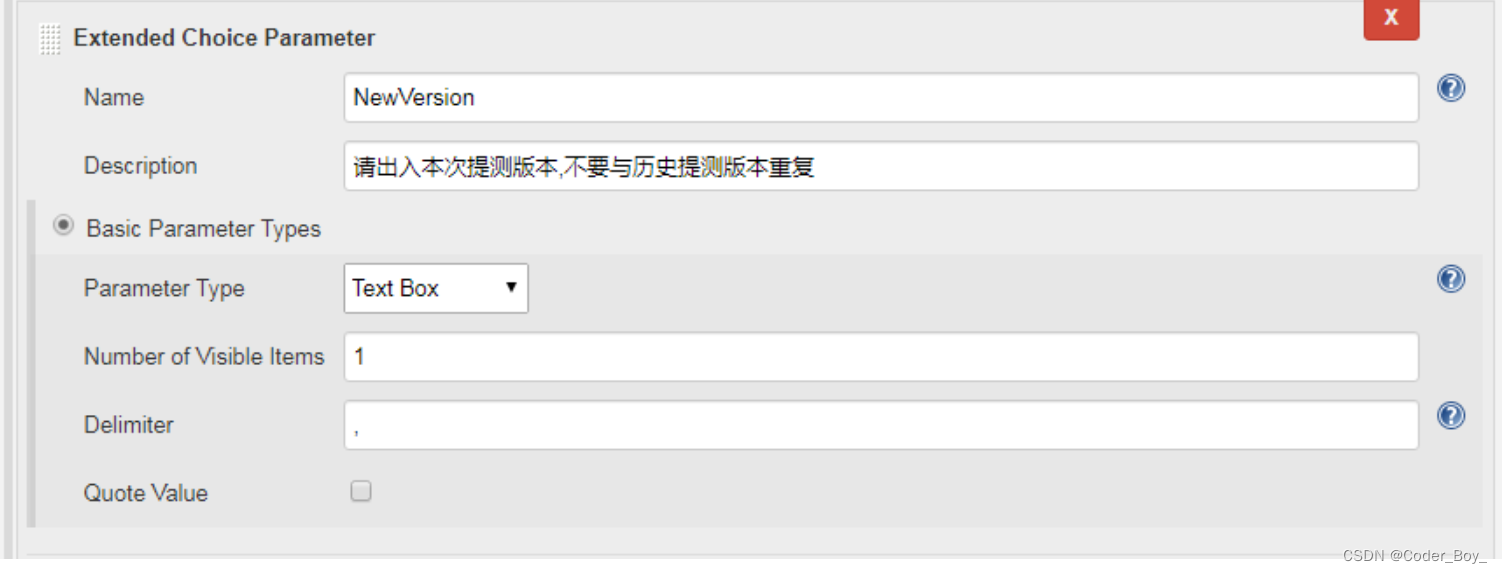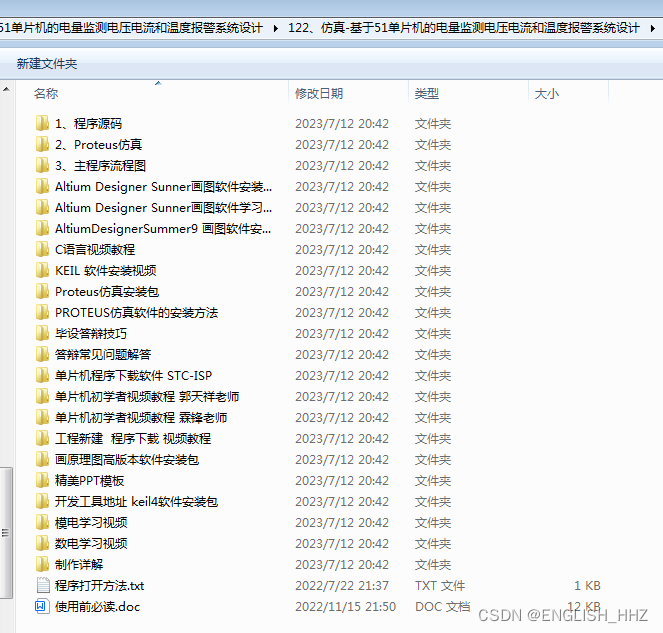system_server 初始化InputManagerService // SystemServer.java
private void startOtherServices(@NonNull TimingsTraceAndSlog t) {
t.traceBegin("startOtherServices");
// 初始化InputManagerService
t.traceBegin("StartInputManagerService");
inputManager = new InputManagerService(context);
t.traceEnd();
t.traceBegin("StartWindowManagerService");
// WMS needs sensor service ready
ConcurrentUtils.waitForFutureNoInterrupt(mSensorServiceStart, START_SENSOR_SERVICE);
mSensorServiceStart = null;
wm = WindowManagerService.main(context, inputManager, !mFirstBoot, mOnlyCore,
new PhoneWindowManager(), mActivityManagerService.mActivityTaskManager);
ServiceManager.addService(Context.WINDOW_SERVICE, wm, /* allowIsolated= */ false,
DUMP_FLAG_PRIORITY_CRITICAL | DUMP_FLAG_PROTO);
ServiceManager.addService(Context.INPUT_SERVICE, inputManager,
/* allowIsolated= */ false, DUMP_FLAG_PRIORITY_CRITICAL);
t.traceEnd();
t.traceBegin("SetWindowManagerService");
mActivityManagerService.setWindowManager(wm);
t.traceEnd();
t.traceBegin("StartInputManager");
inputManager.setWindowManagerCallbacks(wm.getInputManagerCallback());
// 初始化
inputManager.start();
t.traceEnd();
}InputManagerService 类函数调用jni 函数 (InputManagerService.java)
public InputManagerService(Context context) {
this.mContext = context;
this.mHandler = new InputManagerHandler(DisplayThread.get().getLooper());
mStaticAssociations = loadStaticInputPortAssociations();
mUseDevInputEventForAudioJack =
context.getResources().getBoolean(R.bool.config_useDevInputEventForAudioJack);
Slog.i(TAG, "Initializing input manager, mUseDevInputEventForAudioJack="
+ mUseDevInputEventForAudioJack);
// 调用nativeini jni 函数接口
mPtr = nativeInit(this, mContext, mHandler.getLooper().getQueue());
String doubleTouchGestureEnablePath = context.getResources().getString(
R.string.config_doubleTouchGestureEnableFile);
mDoubleTouchGestureEnableFile = TextUtils.isEmpty(doubleTouchGestureEnablePath) ? null :
new File(doubleTouchGestureEnablePath);
LocalServices.addService(InputManagerInternal.class, new LocalService());
}
public void setWindowManagerCallbacks(WindowManagerCallbacks callbacks) {
mWindowManagerCallbacks = callbacks;
}
public void setWiredAccessoryCallbacks(WiredAccessoryCallbacks callbacks) {
mWiredAccessoryCallbacks = callbacks;
}
public void start() {
Slog.i(TAG, "Starting input manager");
// 调用nativeStart jni 函数接口
nativeStart(mPtr);
// Add ourself to the Watchdog monitors.
Watchdog.getInstance().addMonitor(this);
registerPointerSpeedSettingObserver();
registerShowTouchesSettingObserver();
registerAccessibilityLargePointerSettingObserver();
registerLongPressTimeoutObserver();
mContext.registerReceiver(new BroadcastReceiver() {
@Override
public void onReceive(Context context, Intent intent) {
updatePointerSpeedFromSettings();
updateShowTouchesFromSettings();
updateAccessibilityLargePointerFromSettings();
updateDeepPressStatusFromSettings("user switched");
}
}, new IntentFilter(Intent.ACTION_USER_SWITCHED), null, mHandler);
updatePointerSpeedFromSettings();
updateShowTouchesFromSettings();
updateAccessibilityLargePointerFromSettings();
updateDeepPressStatusFromSettings("just booted");
}
com_android_server_input_InputManagerService.cpp 是jni 实现。
static const JNINativeMethod gInputManagerMethods[] = {
/* name, signature, funcPtr */
{"nativeInit",
"(Lcom/android/server/input/InputManagerService;Landroid/content/Context;Landroid/os/"
"MessageQueue;)J",
(void*)nativeInit},
{"nativeStart", "(J)V", (void*)nativeStart},
{"nativeSetDisplayViewports", "(J[Landroid/hardware/display/DisplayViewport;)V",
(void*)nativeSetDisplayViewports},
{"nativeGetScanCodeState", "(JIII)I", (void*)nativeGetScanCodeState},
{"nativeGetKeyCodeState", "(JIII)I", (void*)nativeGetKeyCodeState},
{"nativeGetSwitchState", "(JIII)I", (void*)nativeGetSwitchState},
{"nativeHasKeys", "(JII[I[Z)Z", (void*)nativeHasKeys},
{"nativeRegisterInputChannel", "(JLandroid/view/InputChannel;)V",
(void*)nativeRegisterInputChannel},
{"nativeRegisterInputMonitor", "(JLandroid/view/InputChannel;IZ)V",
(void*)nativeRegisterInputMonitor},
{"nativeUnregisterInputChannel", "(JLandroid/view/InputChannel;)V",
(void*)nativeUnregisterInputChannel},
{"nativePilferPointers", "(JLandroid/os/IBinder;)V", (void*)nativePilferPointers},
{"nativeSetInputFilterEnabled", "(JZ)V", (void*)nativeSetInputFilterEnabled},
{"nativeSetInTouchMode", "(JZ)V", (void*)nativeSetInTouchMode},
{"nativeInjectInputEvent", "(JLandroid/view/InputEvent;IIIII)I",
(void*)nativeInjectInputEvent},
{"nativeVerifyInputEvent", "(JLandroid/view/InputEvent;)Landroid/view/VerifiedInputEvent;",
(void*)nativeVerifyInputEvent},
{"nativeToggleCapsLock", "(JI)V", (void*)nativeToggleCapsLock},
{"nativeDisplayRemoved", "(JI)V", (void*)nativeDisplayRemoved},
{"nativeSetFocusedApplication", "(JILandroid/view/InputApplicationHandle;)V",
(void*)nativeSetFocusedApplication},
{"nativeSetFocusedDisplay", "(JI)V", (void*)nativeSetFocusedDisplay},
{"nativeSetPointerCapture", "(JZ)V", (void*)nativeSetPointerCapture},
{"nativeSetInputDispatchMode", "(JZZ)V", (void*)nativeSetInputDispatchMode},
{"nativeSetSystemUiVisibility", "(JI)V", (void*)nativeSetSystemUiVisibility},
{"nativeTransferTouchFocus", "(JLandroid/os/IBinder;Landroid/os/IBinder;)Z",
(void*)nativeTransferTouchFocus},
{"nativeSetPointerSpeed", "(JI)V", (void*)nativeSetPointerSpeed},
{"nativeSetShowTouches", "(JZ)V", (void*)nativeSetShowTouches},
{"nativeSetInteractive", "(JZ)V", (void*)nativeSetInteractive},
{"nativeReloadCalibration", "(J)V", (void*)nativeReloadCalibration},
{"nativeVibrate", "(JI[JII)V", (void*)nativeVibrate},
{"nativeCancelVibrate", "(JII)V", (void*)nativeCancelVibrate},
{"nativeReloadKeyboardLayouts", "(J)V", (void*)nativeReloadKeyboardLayouts},
{"nativeReloadDeviceAliases", "(J)V", (void*)nativeReloadDeviceAliases},
{"nativeDump", "(J)Ljava/lang/String;", (void*)nativeDump},
{"nativeMonitor", "(J)V", (void*)nativeMonitor},
{"nativeIsInputDeviceEnabled", "(JI)Z", (void*)nativeIsInputDeviceEnabled},
{"nativeEnableInputDevice", "(JI)V", (void*)nativeEnableInputDevice},
{"nativeDisableInputDevice", "(JI)V", (void*)nativeDisableInputDevice},
{"nativeSetPointerIconType", "(JI)V", (void*)nativeSetPointerIconType},
{"nativeReloadPointerIcons", "(J)V", (void*)nativeReloadPointerIcons},
{"nativeSetCustomPointerIcon", "(JLandroid/view/PointerIcon;)V",
(void*)nativeSetCustomPointerIcon},
{"nativeCanDispatchToDisplay", "(JII)Z", (void*)nativeCanDispatchToDisplay},
{"nativeNotifyPortAssociationsChanged", "(J)V", (void*)nativeNotifyPortAssociationsChanged},
{"nativeSetMotionClassifierEnabled", "(JZ)V", (void*)nativeSetMotionClassifierEnabled},
{ "nativedispatchMouse", "(FFIIJ)V", (void*) android_server_InputManager_nativedispatchMouse },
{ "nativedispatchMouseByCd", "(FFJ)V", (void*) android_server_InputManager_nativedispatchMouseByCd },
};我们分析nativeinit 及nativestart 函数new NativeInputManager;调用getInputManager 获取inputmanger对象并调用start 函数。
static jlong nativeInit(JNIEnv* env, jclass /* clazz */,
jobject serviceObj, jobject contextObj, jobject messageQueueObj) {
sp<MessageQueue> messageQueue = android_os_MessageQueue_getMessageQueue(env, messageQueueObj);
if (messageQueue == nullptr) {
jniThrowRuntimeException(env, "MessageQueue is not initialized.");
return 0;
}
NativeInputManager* im = new NativeInputManager(contextObj, serviceObj,
messageQueue->getLooper());
im->incStrong(0);
return reinterpret_cast<jlong>(im);
}
static void nativeStart(JNIEnv* env, jclass /* clazz */, jlong ptr) {
NativeInputManager* im = reinterpret_cast<NativeInputManager*>(ptr);
status_t result = im->getInputManager()->start();
if (result) {
jniThrowRuntimeException(env, "Input manager could not be started.");
}
}InputManager.cpp
InputManager::InputManager(
const sp<InputReaderPolicyInterface>& readerPolicy,
const sp<InputDispatcherPolicyInterface>& dispatcherPolicy) {
// 创建事件发生器
mDispatcher = createInputDispatcher(dispatcherPolicy);
// 过滤
mClassifier = new InputClassifier(mDispatcher);
// 事件读取
mReader = createInputReader(readerPolicy, mClassifier);
}
status_t InputManager::start() {
status_t result = mDispatcher->start();
if (result) {
ALOGE("Could not start InputDispatcher thread due to error %d.", result);
return result;
}
result = mReader->start();
if (result) {
ALOGE("Could not start InputReader due to error %d.", result);
mDispatcher->stop();
return result;
}
return OK;
}从上面代码可以都出代码 ,生成InputDispatcher,及Inputreader ;并初始化。
分析inputreader.cpp
InputReader::InputReader(std::shared_ptr<EventHubInterface> eventHub,
const sp<InputReaderPolicyInterface>& policy,
const sp<InputListenerInterface>& listener)
: mContext(this),
// evenhub
mEventHub(eventHub),
mPolicy(policy),
mGlobalMetaState(0),
mGeneration(1),
mNextInputDeviceId(END_RESERVED_ID),
mDisableVirtualKeysTimeout(LLONG_MIN),
mNextTimeout(LLONG_MAX),
mConfigurationChangesToRefresh(0) {
mQueuedListener = new QueuedInputListener(listener);
{ // acquire lock
AutoMutex _l(mLock);
refreshConfigurationLocked(0);
updateGlobalMetaStateLocked();
} // release lock
}
InputReader::~InputReader() {}
status_t InputReader::start() {
if (mThread) {
return ALREADY_EXISTS;
}
// 启动进程。
mThread = std::make_unique<InputThread>(
"InputReader", [this]() { loopOnce(); }, [this]() { mEventHub->wake(); });
return OK;
}启动线程
void InputReader::loopOnce() {
int32_t oldGeneration;
int32_t timeoutMillis;
bool inputDevicesChanged = false;
std::vector<InputDeviceInfo> inputDevices;
{ // acquire lock
// 获取Event 事件
size_t count = mEventHub->getEvents(timeoutMillis, mEventBuffer, EVENT_BUFFER_SIZE);
{ // acquire lock
AutoMutex _l(mLock);
mReaderIsAliveCondition.broadcast();
if (count) {
//
processEventsLocked(mEventBuffer, count);
}
if (mNextTimeout != LLONG_MAX) {
nsecs_t now = systemTime(SYSTEM_TIME_MONOTONIC);
if (now >= mNextTimeout) {
#if DEBUG_RAW_EVENTS
ALOGD("Timeout expired, latency=%0.3fms", (now - mNextTimeout) * 0.000001f);
#endif
mNextTimeout = LLONG_MAX;
timeoutExpiredLocked(now);
}
}
if (oldGeneration != mGeneration) {
inputDevicesChanged = true;
getInputDevicesLocked(inputDevices);
}
} // release lock
// Send out a message that the describes the changed input devices.
if (inputDevicesChanged) {
mPolicy->notifyInputDevicesChanged(inputDevices);
}
// Flush queued events out to the listener.
// This must happen outside of the lock because the listener could potentially call
// back into the InputReader's methods, such as getScanCodeState, or become blocked
// on another thread similarly waiting to acquire the InputReader lock thereby
// resulting in a deadlock. This situation is actually quite plausible because the
// listener is actually the input dispatcher, which calls into the window manager,
// which occasionally calls into the input reader.
mQueuedListener->flush();
}
分析一下eventhub
size_t EventHub::getEvents(int timeoutMillis, RawEvent* buffer, size_t bufferSize) {
ALOG_ASSERT(bufferSize >= 1);
AutoMutex _l(mLock);
struct input_event readBuffer[bufferSize];
RawEvent* event = buffer;
size_t capacity = bufferSize;
bool awoken = false;
for (;;) {
nsecs_t now = systemTime(SYSTEM_TIME_MONOTONIC);
// Reopen input devices if needed.
if (mNeedToReopenDevices) {
mNeedToReopenDevices = false;
ALOGI("Reopening all input devices due to a configuration change.");
closeAllDevicesLocked();
mNeedToScanDevices = true;
break; // return to the caller before we actually rescan
}
// Report any devices that had last been added/removed.
while (mClosingDevices) {
Device* device = mClosingDevices;
ALOGV("Reporting device closed: id=%d, name=%s\n", device->id, device->path.c_str());
mClosingDevices = device->next;
event->when = now;
event->deviceId = (device->id == mBuiltInKeyboardId)
? ReservedInputDeviceId::BUILT_IN_KEYBOARD_ID
: device->id;
event->type = DEVICE_REMOVED;
event += 1;
delete device;
mNeedToSendFinishedDeviceScan = true;
if (--capacity == 0) {
break;
}
}
if (mNeedToScanDevices) {
mNeedToScanDevices = false;
scanDevicesLocked();
mNeedToSendFinishedDeviceScan = true;
}
while (mOpeningDevices != nullptr) {
Device* device = mOpeningDevices;
ALOGV("Reporting device opened: id=%d, name=%s\n", device->id, device->path.c_str());
mOpeningDevices = device->next;
event->when = now;
event->deviceId = device->id == mBuiltInKeyboardId ? 0 : device->id;
event->type = DEVICE_ADDED;
event += 1;
mNeedToSendFinishedDeviceScan = true;
if (--capacity == 0) {
break;
}
}
if (mNeedToSendFinishedDeviceScan) {
mNeedToSendFinishedDeviceScan = false;
event->when = now;
event->type = FINISHED_DEVICE_SCAN;
event += 1;
if (--capacity == 0) {
break;
}
}
// Grab the next input event.
bool deviceChanged = false;
while (mPendingEventIndex < mPendingEventCount) {
const struct epoll_event& eventItem = mPendingEventItems[mPendingEventIndex++];
if (eventItem.data.fd == mINotifyFd) {
if (eventItem.events & EPOLLIN) {
mPendingINotify = true;
} else {
ALOGW("Received unexpected epoll event 0x%08x for INotify.", eventItem.events);
}
continue;
}
if (eventItem.data.fd == mWakeReadPipeFd) {
if (eventItem.events & EPOLLIN) {
ALOGV("awoken after wake()");
awoken = true;
char buffer[16];
ssize_t nRead;
do {
nRead = read(mWakeReadPipeFd, buffer, sizeof(buffer));
} while ((nRead == -1 && errno == EINTR) || nRead == sizeof(buffer));
} else {
ALOGW("Received unexpected epoll event 0x%08x for wake read pipe.",
eventItem.events);
}
continue;
}
Device* device = getDeviceByFdLocked(eventItem.data.fd);
if (!device) {
ALOGE("Received unexpected epoll event 0x%08x for unknown fd %d.", eventItem.events,
eventItem.data.fd);
ALOG_ASSERT(!DEBUG);
continue;
}
if (device->videoDevice && eventItem.data.fd == device->videoDevice->getFd()) {
if (eventItem.events & EPOLLIN) {
size_t numFrames = device->videoDevice->readAndQueueFrames();
if (numFrames == 0) {
ALOGE("Received epoll event for video device %s, but could not read frame",
device->videoDevice->getName().c_str());
}
} else if (eventItem.events & EPOLLHUP) {
// TODO(b/121395353) - consider adding EPOLLRDHUP
ALOGI("Removing video device %s due to epoll hang-up event.",
device->videoDevice->getName().c_str());
unregisterVideoDeviceFromEpollLocked(*device->videoDevice);
device->videoDevice = nullptr;
} else {
ALOGW("Received unexpected epoll event 0x%08x for device %s.", eventItem.events,
device->videoDevice->getName().c_str());
ALOG_ASSERT(!DEBUG);
}
continue;
}
// This must be an input event
if (eventItem.events & EPOLLIN) {
int32_t readSize =
read(device->fd, readBuffer, sizeof(struct input_event) * capacity);
if (readSize == 0 || (readSize < 0 && errno == ENODEV)) {
// Device was removed before INotify noticed.
ALOGW("could not get event, removed? (fd: %d size: %" PRId32
" bufferSize: %zu capacity: %zu errno: %d)\n",
device->fd, readSize, bufferSize, capacity, errno);
deviceChanged = true;
closeDeviceLocked(device);
} else if (readSize < 0) {
if (errno != EAGAIN && errno != EINTR) {
ALOGW("could not get event (errno=%d)", errno);
}
} else if ((readSize % sizeof(struct input_event)) != 0) {
ALOGE("could not get event (wrong size: %d)", readSize);
} else {
int32_t deviceId = device->id == mBuiltInKeyboardId ? 0 : device->id;
size_t count = size_t(readSize) / sizeof(struct input_event);
for (size_t i = 0; i < count; i++) {
struct input_event& iev = readBuffer[i];
event->when = processEventTimestamp(iev);
event->deviceId = deviceId;
event->type = iev.type;
event->code = iev.code;
event->value = iev.value;
event += 1;
capacity -= 1;
}
if (capacity == 0) {
// The result buffer is full. Reset the pending event index
// so we will try to read the device again on the next iteration.
mPendingEventIndex -= 1;
break;
}
}
} else if (eventItem.events & EPOLLHUP) {
ALOGI("Removing device %s due to epoll hang-up event.",
device->identifier.name.c_str());
deviceChanged = true;
closeDeviceLocked(device);
} else {
ALOGW("Received unexpected epoll event 0x%08x for device %s.", eventItem.events,
device->identifier.name.c_str());
}
}
// readNotify() will modify the list of devices so this must be done after
// processing all other events to ensure that we read all remaining events
// before closing the devices.
if (mPendingINotify && mPendingEventIndex >= mPendingEventCount) {
mPendingINotify = false;
readNotifyLocked();
deviceChanged = true;
}
// Report added or removed devices immediately.
if (deviceChanged) {
continue;
}
// Return now if we have collected any events or if we were explicitly awoken.
if (event != buffer || awoken) {
break;
}
// Poll for events.
// When a device driver has pending (unread) events, it acquires
// a kernel wake lock. Once the last pending event has been read, the device
// driver will release the kernel wake lock, but the epoll will hold the wakelock,
// since we are using EPOLLWAKEUP. The wakelock is released by the epoll when epoll_wait
// is called again for the same fd that produced the event.
// Thus the system can only sleep if there are no events pending or
// currently being processed.
//
// The timeout is advisory only. If the device is asleep, it will not wake just to
// service the timeout.
mPendingEventIndex = 0;
mLock.unlock(); // release lock before poll
// epoll_wait 函数获取有事件fd。
int pollResult = epoll_wait(mEpollFd, mPendingEventItems, EPOLL_MAX_EVENTS, timeoutMillis);
mLock.lock(); // reacquire lock after poll
if (pollResult == 0) {
// Timed out.
mPendingEventCount = 0;
break;
}
if (pollResult < 0) {
// An error occurred.
mPendingEventCount = 0;
// Sleep after errors to avoid locking up the system.
// Hopefully the error is transient.
if (errno != EINTR) {
ALOGW("poll failed (errno=%d)\n", errno);
usleep(100000);
}
} else {
// Some events occurred.
mPendingEventCount = size_t(pollResult);
}
}
// All done, return the number of events we read.
return event - buffer;
}
evenhub 通过epool_create 、epoll_add、 epoll_wait 监测/dev/input/eventX ,是否有事件。
分析一下processEventsLocked 处理函数:
void InputReader::processEventsLocked(const RawEvent* rawEvents, size_t count) {
for (const RawEvent* rawEvent = rawEvents; count;) {
int32_t type = rawEvent->type;
size_t batchSize = 1;
if (type < EventHubInterface::FIRST_SYNTHETIC_EVENT) {
int32_t deviceId = rawEvent->deviceId;
while (batchSize < count) {
if (rawEvent[batchSize].type >= EventHubInterface::FIRST_SYNTHETIC_EVENT ||
rawEvent[batchSize].deviceId != deviceId) {
break;
}
batchSize += 1;
}
#if DEBUG_RAW_EVENTS
ALOGD("BatchSize: %zu Count: %zu", batchSize, count);
#endif
//处理事件。
processEventsForDeviceLocked(deviceId, rawEvent, batchSize);
} else {
switch (rawEvent->type) {
case EventHubInterface::DEVICE_ADDED:
addDeviceLocked(rawEvent->when, rawEvent->deviceId);
break;
case EventHubInterface::DEVICE_REMOVED:
removeDeviceLocked(rawEvent->when, rawEvent->deviceId);
break;
case EventHubInterface::FINISHED_DEVICE_SCAN:
handleConfigurationChangedLocked(rawEvent->when);
break;
default:
ALOG_ASSERT(false); // can't happen
break;
}
}
count -= batchSize;
rawEvent += batchSize;
}
}
void InputReader::processEventsForDeviceLocked(int32_t eventHubId, const RawEvent* rawEvents,
size_t count) {
auto deviceIt = mDevices.find(eventHubId);
if (deviceIt == mDevices.end()) {
ALOGW("Discarding event for unknown eventHubId %d.", eventHubId);
return;
}
std::shared_ptr<InputDevice>& device = deviceIt->second;
if (device->isIgnored()) {
// ALOGD("Discarding event for ignored deviceId %d.", deviceId);
return;
}
device->process(rawEvents, count);
}
给 InputDevice 处理:

我以KeyboardInputMapper 为列:
void KeyboardInputMapper::process(const RawEvent* rawEvent) {
switch (rawEvent->type) {
case EV_KEY: {
int32_t scanCode = rawEvent->code;
int32_t usageCode = mCurrentHidUsage;
mCurrentHidUsage = 0;
if (isKeyboardOrGamepadKey(scanCode)) {
processKey(rawEvent->when, rawEvent->value != 0, scanCode, usageCode);
}
break;
}
case EV_MSC: {
if (rawEvent->code == MSC_SCAN) {
mCurrentHidUsage = rawEvent->value;
}
break;
}
case EV_SYN: {
if (rawEvent->code == SYN_REPORT) {
mCurrentHidUsage = 0;
}
}
}
}
void KeyboardInputMapper::processKey(nsecs_t when, bool down, int32_t scanCode, int32_t usageCode) {
int32_t keyCode;
int32_t keyMetaState;
uint32_t policyFlags;
if (getDeviceContext().mapKey(scanCode, usageCode, mMetaState, &keyCode, &keyMetaState,
&policyFlags)) {
keyCode = AKEYCODE_UNKNOWN;
keyMetaState = mMetaState;
policyFlags = 0;
}
// Support simulate mouse function.
if (policyFlags & POLICY_FLAG_GESTURE) {
getDeviceContext().cancelTouch(when);
}
char mKeyMouseState[PROPERTY_VALUE_MAX] = "";
property_get("sys.KeyMouse.mKeyMouseState", mKeyMouseState, "off");
char mID[PROPERTY_VALUE_MAX] = "";
sprintf(mID,"%d",getDeviceId());
property_set("sys.ID.mID",mID);
if (down) {
if (keyCode == AKEYCODE_PROFILE_SWITCH) {
char targetProduct[PROPERTY_VALUE_MAX] = "";
property_get("ro.target.product", targetProduct, "");
if (strcmp(targetProduct, "box") == 0) {
if (strcmp(mKeyMouseState, "on")==0) {
property_set("sys.KeyMouse.mKeyMouseState", "off");
} else if (strcmp(mKeyMouseState,"off")==0) {
property_set("sys.KeyMouse.mKeyMouseState","on");
}
}
}
// Rotate key codes according to orientation if needed.
if (mParameters.orientationAware) {
keyCode = rotateKeyCode(keyCode, getOrientation());
}
// Add key down.
ssize_t keyDownIndex = findKeyDown(scanCode);
if (keyDownIndex >= 0) {
// key repeat, be sure to use same keycode as before in case of rotation
keyCode = mKeyDowns[keyDownIndex].keyCode;
} else {
// key down
if ((policyFlags & POLICY_FLAG_VIRTUAL) &&
getContext()->shouldDropVirtualKey(when, keyCode, scanCode)) {
return;
}
if (policyFlags & POLICY_FLAG_GESTURE) {
getDeviceContext().cancelTouch(when);
}
KeyDown keyDown;
keyDown.keyCode = keyCode;
keyDown.scanCode = scanCode;
mKeyDowns.push_back(keyDown);
}
mDownTime = when;
} else {
// Remove key down.
ssize_t keyDownIndex = findKeyDown(scanCode);
if (keyDownIndex >= 0) {
// key up, be sure to use same keycode as before in case of rotation
keyCode = mKeyDowns[keyDownIndex].keyCode;
mKeyDowns.erase(mKeyDowns.begin() + (size_t)keyDownIndex);
} else {
// key was not actually down
ALOGI("Dropping key up from device %s because the key was not down. "
"keyCode=%d, scanCode=%d",
getDeviceName().c_str(), keyCode, scanCode);
return;
}
}
if (updateMetaStateIfNeeded(keyCode, down)) {
// If global meta state changed send it along with the key.
// If it has not changed then we'll use what keymap gave us,
// since key replacement logic might temporarily reset a few
// meta bits for given key.
keyMetaState = mMetaState;
}
nsecs_t downTime = mDownTime;
// Key down on external an keyboard should wake the device.
// We don't do this for internal keyboards to prevent them from waking up in your pocket.
// For internal keyboards and devices for which the default wake behavior is explicitly
// prevented (e.g. TV remotes), the key layout file should specify the policy flags for each
// wake key individually.
// TODO: Use the input device configuration to control this behavior more finely.
if (down && getDeviceContext().isExternal() && !mParameters.doNotWakeByDefault &&
!isMediaKey(keyCode)) {
policyFlags |= POLICY_FLAG_WAKE;
}
if (mParameters.handlesKeyRepeat) {
policyFlags |= POLICY_FLAG_DISABLE_KEY_REPEAT;
}
if (down && !isMetaKey(keyCode)) {
getContext()->fadePointer();
}
//
if (strcmp(mKeyMouseState, "on") == 0) {
if(keyCode == AKEYCODE_DPAD_LEFT) {
keyCode = AKEYCODE_SYSTEM_NAVIGATION_LEFT;
} else if (keyCode == AKEYCODE_DPAD_RIGHT) {
keyCode = AKEYCODE_SYSTEM_NAVIGATION_RIGHT;
} else if (keyCode == AKEYCODE_DPAD_UP) {
keyCode = AKEYCODE_SYSTEM_NAVIGATION_UP;
} else if (keyCode == AKEYCODE_DPAD_DOWN) {
keyCode = AKEYCODE_SYSTEM_NAVIGATION_DOWN;
}
}
NotifyKeyArgs args(getContext()->getNextId(), when, getDeviceId(), mSource, getDisplayId(),
policyFlags, down ? AKEY_EVENT_ACTION_DOWN : AKEY_EVENT_ACTION_UP,
AKEY_EVENT_FLAG_FROM_SYSTEM, keyCode, scanCode, keyMetaState, downTime);
getListener()->notifyKey(&args);
}
将event组合成了一个notifykeyArgs数据结构,同时调用了listener的notifykey方法。
void QueuedInputListener::notifyKey(const NotifyKeyArgs* args) {
traceEvent(__func__, args->id);
mArgsQueue.push_back(new NotifyKeyArgs(*args));
}传递事件:
void QueuedInputListener::flush() {
size_t count = mArgsQueue.size();
for (size_t i = 0; i < count; i++) {
NotifyArgs* args = mArgsQueue[i];
args->notify(mInnerListener);
delete args;
}
mArgsQueue.clear();
}
void NotifyKeyArgs::notify(const sp<InputListenerInterface>& listener) const {
listener->notifyKey(this);
}
listener 实际上就是InputDispatcher,调用InputDispatcher::notifyKey 传递事件

分析InputDispatcher
void InputDispatcher::notifyKey(const NotifyKeyArgs* args) {
#if DEBUG_INBOUND_EVENT_DETAILS
ALOGD("notifyKey - eventTime=%" PRId64 ", deviceId=%d, source=0x%x, displayId=%" PRId32
"policyFlags=0x%x, action=0x%x, "
"flags=0x%x, keyCode=0x%x, scanCode=0x%x, metaState=0x%x, downTime=%" PRId64,
args->eventTime, args->deviceId, args->source, args->displayId, args->policyFlags,
args->action, args->flags, args->keyCode, args->scanCode, args->metaState,
args->downTime);
#endif
if (!validateKeyEvent(args->action)) {
return;
}
uint32_t policyFlags = args->policyFlags;
int32_t flags = args->flags;
int32_t metaState = args->metaState;
// InputDispatcher tracks and generates key repeats on behalf of
// whatever notifies it, so repeatCount should always be set to 0
constexpr int32_t repeatCount = 0;
if ((policyFlags & POLICY_FLAG_VIRTUAL) || (flags & AKEY_EVENT_FLAG_VIRTUAL_HARD_KEY)) {
policyFlags |= POLICY_FLAG_VIRTUAL;
flags |= AKEY_EVENT_FLAG_VIRTUAL_HARD_KEY;
}
if (policyFlags & POLICY_FLAG_FUNCTION) {
metaState |= AMETA_FUNCTION_ON;
}
policyFlags |= POLICY_FLAG_TRUSTED;
int32_t keyCode = args->keyCode;
accelerateMetaShortcuts(args->deviceId, args->action, keyCode, metaState);
KeyEvent event;
event.initialize(args->id, args->deviceId, args->source, args->displayId, INVALID_HMAC,
args->action, flags, keyCode, args->scanCode, metaState, repeatCount,
args->downTime, args->eventTime);
android::base::Timer t;
mPolicy->interceptKeyBeforeQueueing(&event, /*byref*/ policyFlags);
if (t.duration() > SLOW_INTERCEPTION_THRESHOLD) {
ALOGW("Excessive delay in interceptKeyBeforeQueueing; took %s ms",
std::to_string(t.duration().count()).c_str());
}
bool needWake;
{ // acquire lock
mLock.lock();
if (shouldSendKeyToInputFilterLocked(args)) {
mLock.unlock();
policyFlags |= POLICY_FLAG_FILTERED;
if (!mPolicy->filterInputEvent(&event, policyFlags)) {
return; // event was consumed by the filter
}
mLock.lock();
}
KeyEntry* newEntry =
new KeyEntry(args->id, args->eventTime, args->deviceId, args->source,
args->displayId, policyFlags, args->action, flags, keyCode,
args->scanCode, metaState, repeatCount, args->downTime);
needWake = enqueueInboundEventLocked(newEntry);
mLock.unlock();
} // release lock
if (needWake) {
mLooper->wake();
}
}
enqueueInboundEventLocked 将事件加入队列。 唤醒进程。
void InputDispatcher::dispatchOnce() {
nsecs_t nextWakeupTime = LONG_LONG_MAX;
{ // acquire lock
std::scoped_lock _l(mLock);
mDispatcherIsAlive.notify_all();
// Run a dispatch loop if there are no pending commands.
// The dispatch loop might enqueue commands to run afterwards.
if (!haveCommandsLocked()) {
dispatchOnceInnerLocked(&nextWakeupTime);
}
// Run all pending commands if there are any.
// If any commands were run then force the next poll to wake up immediately.
if (runCommandsLockedInterruptible()) {
nextWakeupTime = LONG_LONG_MIN;
}
// If we are still waiting for ack on some events,
// we might have to wake up earlier to check if an app is anr'ing.
const nsecs_t nextAnrCheck = processAnrsLocked();
nextWakeupTime = std::min(nextWakeupTime, nextAnrCheck);
// We are about to enter an infinitely long sleep, because we have no commands or
// pending or queued events
if (nextWakeupTime == LONG_LONG_MAX) {
mDispatcherEnteredIdle.notify_all();
}
} // release lock
// Wait for callback or timeout or wake. (make sure we round up, not down)
nsecs_t currentTime = now();
int timeoutMillis = toMillisecondTimeoutDelay(currentTime, nextWakeupTime);
mLooper->pollOnce(timeoutMillis);
}
void InputDispatcher::dispatchOnceInnerLocked(nsecs_t* nextWakeupTime) {
nsecs_t currentTime = now();
// Reset the key repeat timer whenever normal dispatch is suspended while the
// device is in a non-interactive state. This is to ensure that we abort a key
// repeat if the device is just coming out of sleep.
if (!mDispatchEnabled) {
resetKeyRepeatLocked();
}
// If dispatching is frozen, do not process timeouts or try to deliver any new events.
if (mDispatchFrozen) {
if (DEBUG_FOCUS) {
ALOGD("Dispatch frozen. Waiting some more.");
}
return;
}
// Optimize latency of app switches.
// Essentially we start a short timeout when an app switch key (HOME / ENDCALL) has
// been pressed. When it expires, we preempt dispatch and drop all other pending events.
bool isAppSwitchDue = mAppSwitchDueTime <= currentTime;
if (mAppSwitchDueTime < *nextWakeupTime) {
*nextWakeupTime = mAppSwitchDueTime;
}
// Ready to start a new event.
// If we don't already have a pending event, go grab one.
if (!mPendingEvent) {
if (mInboundQueue.empty()) {
if (isAppSwitchDue) {
// The inbound queue is empty so the app switch key we were waiting
// for will never arrive. Stop waiting for it.
resetPendingAppSwitchLocked(false);
isAppSwitchDue = false;
}
// Synthesize a key repeat if appropriate.
if (mKeyRepeatState.lastKeyEntry) {
if (currentTime >= mKeyRepeatState.nextRepeatTime) {
mPendingEvent = synthesizeKeyRepeatLocked(currentTime);
} else {
if (mKeyRepeatState.nextRepeatTime < *nextWakeupTime) {
*nextWakeupTime = mKeyRepeatState.nextRepeatTime;
}
}
}
// Nothing to do if there is no pending event.
if (!mPendingEvent) {
return;
}
} else {
// Inbound queue has at least one entry.
mPendingEvent = mInboundQueue.front();
mInboundQueue.pop_front();
traceInboundQueueLengthLocked();
}
// Poke user activity for this event.
if (mPendingEvent->policyFlags & POLICY_FLAG_PASS_TO_USER) {
pokeUserActivityLocked(*mPendingEvent);
}
}
// Now we have an event to dispatch.
// All events are eventually dequeued and processed this way, even if we intend to drop them.
ALOG_ASSERT(mPendingEvent != nullptr);
bool done = false;
DropReason dropReason = DropReason::NOT_DROPPED;
if (!(mPendingEvent->policyFlags & POLICY_FLAG_PASS_TO_USER)) {
dropReason = DropReason::POLICY;
} else if (!mDispatchEnabled) {
dropReason = DropReason::DISABLED;
}
if (mNextUnblockedEvent == mPendingEvent) {
mNextUnblockedEvent = nullptr;
}
switch (mPendingEvent->type) {
case EventEntry::Type::CONFIGURATION_CHANGED: {
ConfigurationChangedEntry* typedEntry =
static_cast<ConfigurationChangedEntry*>(mPendingEvent);
done = dispatchConfigurationChangedLocked(currentTime, typedEntry);
dropReason = DropReason::NOT_DROPPED; // configuration changes are never dropped
break;
}
case EventEntry::Type::DEVICE_RESET: {
DeviceResetEntry* typedEntry = static_cast<DeviceResetEntry*>(mPendingEvent);
done = dispatchDeviceResetLocked(currentTime, typedEntry);
dropReason = DropReason::NOT_DROPPED; // device resets are never dropped
break;
}
case EventEntry::Type::FOCUS: {
FocusEntry* typedEntry = static_cast<FocusEntry*>(mPendingEvent);
dispatchFocusLocked(currentTime, typedEntry);
done = true;
dropReason = DropReason::NOT_DROPPED; // focus events are never dropped
break;
}
case EventEntry::Type::KEY: {
KeyEntry* typedEntry = static_cast<KeyEntry*>(mPendingEvent);
if (isAppSwitchDue) {
if (isAppSwitchKeyEvent(*typedEntry)) {
resetPendingAppSwitchLocked(true);
isAppSwitchDue = false;
} else if (dropReason == DropReason::NOT_DROPPED) {
dropReason = DropReason::APP_SWITCH;
}
}
if (dropReason == DropReason::NOT_DROPPED && isStaleEvent(currentTime, *typedEntry)) {
dropReason = DropReason::STALE;
}
if (dropReason == DropReason::NOT_DROPPED && mNextUnblockedEvent) {
dropReason = DropReason::BLOCKED;
}
// 处理按键
done = dispatchKeyLocked(currentTime, typedEntry, &dropReason, nextWakeupTime);
break;
}
case EventEntry::Type::MOTION: {
MotionEntry* typedEntry = static_cast<MotionEntry*>(mPendingEvent);
if (dropReason == DropReason::NOT_DROPPED && isAppSwitchDue) {
dropReason = DropReason::APP_SWITCH;
}
if (dropReason == DropReason::NOT_DROPPED && isStaleEvent(currentTime, *typedEntry)) {
dropReason = DropReason::STALE;
}
if (dropReason == DropReason::NOT_DROPPED && mNextUnblockedEvent) {
dropReason = DropReason::BLOCKED;
}
//处理触摸事件
done = dispatchMotionLocked(currentTime, typedEntry, &dropReason, nextWakeupTime);
break;
}
}
if (done) {
if (dropReason != DropReason::NOT_DROPPED) {
dropInboundEventLocked(*mPendingEvent, dropReason);
}
mLastDropReason = dropReason;
releasePendingEventLocked();
*nextWakeupTime = LONG_LONG_MIN; // force next poll to wake up immediately
}
}
bool InputDispatcher::dispatchKeyLocked(nsecs_t currentTime, KeyEntry* entry,
DropReason* dropReason, nsecs_t* nextWakeupTime) {
// Preprocessing.
if (!entry->dispatchInProgress) {
if (entry->repeatCount == 0 && entry->action == AKEY_EVENT_ACTION_DOWN &&
(entry->policyFlags & POLICY_FLAG_TRUSTED) &&
(!(entry->policyFlags & POLICY_FLAG_DISABLE_KEY_REPEAT))) {
if (mKeyRepeatState.lastKeyEntry &&
mKeyRepeatState.lastKeyEntry->keyCode == entry->keyCode) {
// We have seen two identical key downs in a row which indicates that the device
// driver is automatically generating key repeats itself. We take note of the
// repeat here, but we disable our own next key repeat timer since it is clear that
// we will not need to synthesize key repeats ourselves.
entry->repeatCount = mKeyRepeatState.lastKeyEntry->repeatCount + 1;
resetKeyRepeatLocked();
mKeyRepeatState.nextRepeatTime = LONG_LONG_MAX; // don't generate repeats ourselves
} else {
// Not a repeat. Save key down state in case we do see a repeat later.
resetKeyRepeatLocked();
mKeyRepeatState.nextRepeatTime = entry->eventTime + mConfig.keyRepeatTimeout;
}
mKeyRepeatState.lastKeyEntry = entry;
entry->refCount += 1;
} else if (!entry->syntheticRepeat) {
resetKeyRepeatLocked();
}
if (entry->repeatCount == 1) {
entry->flags |= AKEY_EVENT_FLAG_LONG_PRESS;
} else {
entry->flags &= ~AKEY_EVENT_FLAG_LONG_PRESS;
}
entry->dispatchInProgress = true;
logOutboundKeyDetails("dispatchKey - ", *entry);
}
// Handle case where the policy asked us to try again later last time.
if (entry->interceptKeyResult == KeyEntry::INTERCEPT_KEY_RESULT_TRY_AGAIN_LATER) {
if (currentTime < entry->interceptKeyWakeupTime) {
if (entry->interceptKeyWakeupTime < *nextWakeupTime) {
*nextWakeupTime = entry->interceptKeyWakeupTime;
}
return false; // wait until next wakeup
}
entry->interceptKeyResult = KeyEntry::INTERCEPT_KEY_RESULT_UNKNOWN;
entry->interceptKeyWakeupTime = 0;
}
// Give the policy a chance to intercept the key.
if (entry->interceptKeyResult == KeyEntry::INTERCEPT_KEY_RESULT_UNKNOWN) {
if (entry->policyFlags & POLICY_FLAG_PASS_TO_USER) {
std::unique_ptr<CommandEntry> commandEntry = std::make_unique<CommandEntry>(
&InputDispatcher::doInterceptKeyBeforeDispatchingLockedInterruptible);
sp<InputWindowHandle> focusedWindowHandle =
getValueByKey(mFocusedWindowHandlesByDisplay, getTargetDisplayId(*entry));
if (focusedWindowHandle != nullptr) {
commandEntry->inputChannel = getInputChannelLocked(focusedWindowHandle->getToken());
}
commandEntry->keyEntry = entry;
postCommandLocked(std::move(commandEntry));
entry->refCount += 1;
return false; // wait for the command to run
} else {
entry->interceptKeyResult = KeyEntry::INTERCEPT_KEY_RESULT_CONTINUE;
}
} else if (entry->interceptKeyResult == KeyEntry::INTERCEPT_KEY_RESULT_SKIP) {
if (*dropReason == DropReason::NOT_DROPPED) {
*dropReason = DropReason::POLICY;
}
}
// Clean up if dropping the event.
if (*dropReason != DropReason::NOT_DROPPED) {
setInjectionResult(entry,
*dropReason == DropReason::POLICY ? INPUT_EVENT_INJECTION_SUCCEEDED
: INPUT_EVENT_INJECTION_FAILED);
mReporter->reportDroppedKey(entry->id);
return true;
}
// Identify targets.
std::vector<InputTarget> inputTargets;
// 获取焦点window
int32_t injectionResult =
findFocusedWindowTargetsLocked(currentTime, *entry, inputTargets, nextWakeupTime);
if (injectionResult == INPUT_EVENT_INJECTION_PENDING) {
return false;
}
setInjectionResult(entry, injectionResult);
if (injectionResult != INPUT_EVENT_INJECTION_SUCCEEDED) {
return true;
}
// Add monitor channels from event's or focused display.
addGlobalMonitoringTargetsLocked(inputTargets, getTargetDisplayId(*entry));
// Dispatch the key.
dispatchEventLocked(currentTime, entry, inputTargets);
return true;
}
void InputDispatcher::dispatchEventLocked(nsecs_t currentTime, EventEntry* eventEntry,
const std::vector<InputTarget>& inputTargets) {
ATRACE_CALL();
#if DEBUG_DISPATCH_CYCLE
ALOGD("dispatchEventToCurrentInputTargets");
#endif
ALOG_ASSERT(eventEntry->dispatchInProgress); // should already have been set to true
pokeUserActivityLocked(*eventEntry);
for (const InputTarget& inputTarget : inputTargets) {
sp<Connection> connection =
getConnectionLocked(inputTarget.inputChannel->getConnectionToken());
if (connection != nullptr) {
prepareDispatchCycleLocked(currentTime, connection, eventEntry, inputTarget);
} else {
if (DEBUG_FOCUS) {
ALOGD("Dropping event delivery to target with channel '%s' because it "
"is no longer registered with the input dispatcher.",
inputTarget.inputChannel->getName().c_str());
}
}
}
}
void InputDispatcher::prepareDispatchCycleLocked(nsecs_t currentTime,
const sp<Connection>& connection,
EventEntry* eventEntry,
const InputTarget& inputTarget) {
if (ATRACE_ENABLED()) {
std::string message =
StringPrintf("prepareDispatchCycleLocked(inputChannel=%s, id=0x%" PRIx32 ")",
connection->getInputChannelName().c_str(), eventEntry->id);
ATRACE_NAME(message.c_str());
}
#if DEBUG_DISPATCH_CYCLE
ALOGD("channel '%s' ~ prepareDispatchCycle - flags=0x%08x, "
"globalScaleFactor=%f, pointerIds=0x%x %s",
connection->getInputChannelName().c_str(), inputTarget.flags,
inputTarget.globalScaleFactor, inputTarget.pointerIds.value,
inputTarget.getPointerInfoString().c_str());
#endif
// Skip this event if the connection status is not normal.
// We don't want to enqueue additional outbound events if the connection is broken.
if (connection->status != Connection::STATUS_NORMAL) {
#if DEBUG_DISPATCH_CYCLE
ALOGD("channel '%s' ~ Dropping event because the channel status is %s",
connection->getInputChannelName().c_str(), connection->getStatusLabel());
#endif
return;
}
// Split a motion event if needed.
if (inputTarget.flags & InputTarget::FLAG_SPLIT) {
LOG_ALWAYS_FATAL_IF(eventEntry->type != EventEntry::Type::MOTION,
"Entry type %s should not have FLAG_SPLIT",
EventEntry::typeToString(eventEntry->type));
const MotionEntry& originalMotionEntry = static_cast<const MotionEntry&>(*eventEntry);
if (inputTarget.pointerIds.count() != originalMotionEntry.pointerCount) {
MotionEntry* splitMotionEntry =
splitMotionEvent(originalMotionEntry, inputTarget.pointerIds);
if (!splitMotionEntry) {
return; // split event was dropped
}
if (DEBUG_FOCUS) {
ALOGD("channel '%s' ~ Split motion event.",
connection->getInputChannelName().c_str());
logOutboundMotionDetails(" ", *splitMotionEntry);
}
enqueueDispatchEntriesLocked(currentTime, connection, splitMotionEntry, inputTarget);
splitMotionEntry->release();
return;
}
}
// Not splitting. Enqueue dispatch entries for the event as is.
enqueueDispatchEntriesLocked(currentTime, connection, eventEntry, inputTarget);
}
void InputDispatcher::enqueueDispatchEntriesLocked(nsecs_t currentTime,
const sp<Connection>& connection,
EventEntry* eventEntry,
const InputTarget& inputTarget) {
if (ATRACE_ENABLED()) {
std::string message =
StringPrintf("enqueueDispatchEntriesLocked(inputChannel=%s, id=0x%" PRIx32 ")",
connection->getInputChannelName().c_str(), eventEntry->id);
ATRACE_NAME(message.c_str());
}
bool wasEmpty = connection->outboundQueue.empty();
// Enqueue dispatch entries for the requested modes.
enqueueDispatchEntryLocked(connection, eventEntry, inputTarget,
InputTarget::FLAG_DISPATCH_AS_HOVER_EXIT);
enqueueDispatchEntryLocked(connection, eventEntry, inputTarget,
InputTarget::FLAG_DISPATCH_AS_OUTSIDE);
enqueueDispatchEntryLocked(connection, eventEntry, inputTarget,
InputTarget::FLAG_DISPATCH_AS_HOVER_ENTER);
enqueueDispatchEntryLocked(connection, eventEntry, inputTarget,
InputTarget::FLAG_DISPATCH_AS_IS);
enqueueDispatchEntryLocked(connection, eventEntry, inputTarget,
InputTarget::FLAG_DISPATCH_AS_SLIPPERY_EXIT);
enqueueDispatchEntryLocked(connection, eventEntry, inputTarget,
InputTarget::FLAG_DISPATCH_AS_SLIPPERY_ENTER);
// If the outbound queue was previously empty, start the dispatch cycle going.
if (wasEmpty && !connection->outboundQueue.empty()) {
startDispatchCycleLocked(currentTime, connection);
}
}
void InputDispatcher::startDispatchCycleLocked(nsecs_t currentTime,
const sp<Connection>& connection) {
if (ATRACE_ENABLED()) {
std::string message = StringPrintf("startDispatchCycleLocked(inputChannel=%s)",
connection->getInputChannelName().c_str());
ATRACE_NAME(message.c_str());
}
#if DEBUG_DISPATCH_CYCLE
ALOGD("channel '%s' ~ startDispatchCycle", connection->getInputChannelName().c_str());
#endif
while (connection->status == Connection::STATUS_NORMAL && !connection->outboundQueue.empty()) {
DispatchEntry* dispatchEntry = connection->outboundQueue.front();
dispatchEntry->deliveryTime = currentTime;
const nsecs_t timeout =
getDispatchingTimeoutLocked(connection->inputChannel->getConnectionToken());
dispatchEntry->timeoutTime = currentTime + timeout;
// Publish the event.
status_t status;
EventEntry* eventEntry = dispatchEntry->eventEntry;
switch (eventEntry->type) {
case EventEntry::Type::KEY: {
const KeyEntry* keyEntry = static_cast<KeyEntry*>(eventEntry);
std::array<uint8_t, 32> hmac = getSignature(*keyEntry, *dispatchEntry);
// Publish the key event.
status =
connection->inputPublisher
.publishKeyEvent(dispatchEntry->seq, dispatchEntry->resolvedEventId,
keyEntry->deviceId, keyEntry->source,
keyEntry->displayId, std::move(hmac),
dispatchEntry->resolvedAction,
dispatchEntry->resolvedFlags, keyEntry->keyCode,
keyEntry->scanCode, keyEntry->metaState,
keyEntry->repeatCount, keyEntry->downTime,
keyEntry->eventTime);
break;
}
case EventEntry::Type::MOTION: {
MotionEntry* motionEntry = static_cast<MotionEntry*>(eventEntry);
PointerCoords scaledCoords[MAX_POINTERS];
const PointerCoords* usingCoords = motionEntry->pointerCoords;
// Set the X and Y offset and X and Y scale depending on the input source.
float xOffset = 0.0f, yOffset = 0.0f;
float xScale = 1.0f, yScale = 1.0f;
if ((motionEntry->source & AINPUT_SOURCE_CLASS_POINTER) &&
!(dispatchEntry->targetFlags & InputTarget::FLAG_ZERO_COORDS)) {
float globalScaleFactor = dispatchEntry->globalScaleFactor;
xScale = dispatchEntry->windowXScale;
yScale = dispatchEntry->windowYScale;
xOffset = dispatchEntry->xOffset * xScale;
yOffset = dispatchEntry->yOffset * yScale;
if (globalScaleFactor != 1.0f) {
for (uint32_t i = 0; i < motionEntry->pointerCount; i++) {
scaledCoords[i] = motionEntry->pointerCoords[i];
// Don't apply window scale here since we don't want scale to affect raw
// coordinates. The scale will be sent back to the client and applied
// later when requesting relative coordinates.
scaledCoords[i].scale(globalScaleFactor, 1 /* windowXScale */,
1 /* windowYScale */);
}
usingCoords = scaledCoords;
}
} else {
// We don't want the dispatch target to know.
if (dispatchEntry->targetFlags & InputTarget::FLAG_ZERO_COORDS) {
for (uint32_t i = 0; i < motionEntry->pointerCount; i++) {
scaledCoords[i].clear();
}
usingCoords = scaledCoords;
}
}
std::array<uint8_t, 32> hmac = getSignature(*motionEntry, *dispatchEntry);
// Publish the motion event.
status = connection->inputPublisher
.publishMotionEvent(dispatchEntry->seq,
dispatchEntry->resolvedEventId,
motionEntry->deviceId, motionEntry->source,
motionEntry->displayId, std::move(hmac),
dispatchEntry->resolvedAction,
motionEntry->actionButton,
dispatchEntry->resolvedFlags,
motionEntry->edgeFlags, motionEntry->metaState,
motionEntry->buttonState,
motionEntry->classification, xScale, yScale,
xOffset, yOffset, motionEntry->xPrecision,
motionEntry->yPrecision,
motionEntry->xCursorPosition,
motionEntry->yCursorPosition,
motionEntry->downTime, motionEntry->eventTime,
motionEntry->pointerCount,
motionEntry->pointerProperties, usingCoords);
reportTouchEventForStatistics(*motionEntry);
break;
}
case EventEntry::Type::FOCUS: {
FocusEntry* focusEntry = static_cast<FocusEntry*>(eventEntry);
status = connection->inputPublisher.publishFocusEvent(dispatchEntry->seq,
focusEntry->id,
focusEntry->hasFocus,
mInTouchMode);
break;
}
case EventEntry::Type::CONFIGURATION_CHANGED:
case EventEntry::Type::DEVICE_RESET: {
LOG_ALWAYS_FATAL("Should never start dispatch cycles for %s events",
EventEntry::typeToString(eventEntry->type));
return;
}
}
// Check the result.
if (status) {
if (status == WOULD_BLOCK) {
if (connection->waitQueue.empty()) {
ALOGE("channel '%s' ~ Could not publish event because the pipe is full. "
"This is unexpected because the wait queue is empty, so the pipe "
"should be empty and we shouldn't have any problems writing an "
"event to it, status=%d",
connection->getInputChannelName().c_str(), status);
abortBrokenDispatchCycleLocked(currentTime, connection, true /*notify*/);
} else {
// Pipe is full and we are waiting for the app to finish process some events
// before sending more events to it.
#if DEBUG_DISPATCH_CYCLE
ALOGD("channel '%s' ~ Could not publish event because the pipe is full, "
"waiting for the application to catch up",
connection->getInputChannelName().c_str());
#endif
}
} else {
ALOGE("channel '%s' ~ Could not publish event due to an unexpected error, "
"status=%d",
connection->getInputChannelName().c_str(), status);
abortBrokenDispatchCycleLocked(currentTime, connection, true /*notify*/);
}
return;
}
// Re-enqueue the event on the wait queue.
connection->outboundQueue.erase(std::remove(connection->outboundQueue.begin(),
connection->outboundQueue.end(),
dispatchEntry));
traceOutboundQueueLength(connection);
connection->waitQueue.push_back(dispatchEntry);
if (connection->responsive) {
mAnrTracker.insert(dispatchEntry->timeoutTime,
connection->inputChannel->getConnectionToken());
}
traceWaitQueueLength(connection);
}
}
status_t InputPublisher::publishKeyEvent(uint32_t seq, int32_t eventId, int32_t deviceId,
int32_t source, int32_t displayId,
std::array<uint8_t, 32> hmac, int32_t action,
int32_t flags, int32_t keyCode, int32_t scanCode,
int32_t metaState, int32_t repeatCount, nsecs_t downTime,
nsecs_t eventTime) {
if (ATRACE_ENABLED()) {
std::string message = StringPrintf("publishKeyEvent(inputChannel=%s, keyCode=%" PRId32 ")",
mChannel->getName().c_str(), keyCode);
ATRACE_NAME(message.c_str());
}
if (DEBUG_TRANSPORT_ACTIONS) {
ALOGD("channel '%s' publisher ~ publishKeyEvent: seq=%u, deviceId=%d, source=0x%x, "
"action=0x%x, flags=0x%x, keyCode=%d, scanCode=%d, metaState=0x%x, repeatCount=%d,"
"downTime=%" PRId64 ", eventTime=%" PRId64,
mChannel->getName().c_str(), seq, deviceId, source, action, flags, keyCode, scanCode,
metaState, repeatCount, downTime, eventTime);
}
if (!seq) {
ALOGE("Attempted to publish a key event with sequence number 0.");
return BAD_VALUE;
}
InputMessage msg;
msg.header.type = InputMessage::Type::KEY;
msg.body.key.seq = seq;
msg.body.key.eventId = eventId;
msg.body.key.deviceId = deviceId;
msg.body.key.source = source;
msg.body.key.displayId = displayId;
msg.body.key.hmac = std::move(hmac);
msg.body.key.action = action;
msg.body.key.flags = flags;
msg.body.key.keyCode = keyCode;
msg.body.key.scanCode = scanCode;
msg.body.key.metaState = metaState;
msg.body.key.repeatCount = repeatCount;
msg.body.key.downTime = downTime;
msg.body.key.eventTime = eventTime;
return mChannel->sendMessage(&msg);
}

